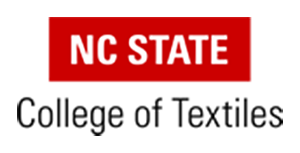Ten years ago, TriLUG started operating as a North Carolina non-profit
corporation, in order to accept hardware and monetary donations, in turn
re-donating to schools and local LUGs, acting as an incubator for promoting
Linux. Over time, Linux has become more mainstream, is accepted in the
business world, and even used at schools. TriLUG's mission has therefore
changed accordingly, to become more of an educational and social group for
technology and Open Source. Although we're still devoted to education and
outreach, our income and expenses are now related to pizza and meetings.
We are run by a Steering Committee whose membership changes by vote every
year in May. This committee is a group of volunteers, which mean the
committee members have a significantly limited amount of time and energy to
invest in running TriLUG. These two facts have led to a problem that TriLUG
now faces: Over time, the Steering Committee has focused it's efforts on
finding meeting speakers, donors, sponsors, and pizza; and maintaining our
online resources. The annual Steering Committee hand-offs and corporate
bureaucratic tasks have taken a back seat, to the point that we have been
delinquent in corporate paperwork and tax filings. In fact, we are just a
hair's breadth from losing our NC non-profit status and our Federal EIN.
TriLUG is now faced with a decision, upon which we must vote. We must
choose between one of two options.
Do we want to keep the non-profit corporate status which we've not really
used nor needed as of late? If we choose this option, it means that we MUST
spend the time and energy (and possibly even money) required to dig
ourselves out of a deep paperwork hole in order to prove to the IRS and the
State of North Carolina that we desire and deserve to keep the status. In
order for this option to function, we must have volunteers (other than the
current Steering Committee) who will stand up to do the necessary backlog
work. In addition, future Steering Committees MUST be responsible for the
bureaucratic tasks necessary for maintaining the non-profit corporate
status.
On the other hand, do we opt to dissolve TriLUG as a corporation, and become
an informal user group, handling money for pizza and speakers by using a DBA
bank account? This choice allows our current and future Steering Committees
to focus on providing speakers and pizza for meetings, and maintaining our
online resources, and frees us from worrying about meeting (or failing to
meet) corporate status requirements and performing the bureaucratic tasks
necessary to maintain a non-profit corporation.
As you consider the two choices, keep in mind that TriLUG has no current
need for non-profit corporate status, and that if we dissolve the
corporation now, at any time in the future we decide we need it, we can do what is
necessary then to re-incorporate. Also, consider that that at the
organizational meeting held in December to to discuss these matters, the
opinion of the majority of those attending was that we no longer need to be
a non-profit corporation. Finally, if we choose to keep our current
corporate status, it is imperative that those who choose this MUST stand up
and invest themselves in making it happen, or the choice WILL fail!
Members of TriLUG, for which option will you vote?
If you would like to listen to the recording of the Organizational Meeting that was held on December 2nd, 2010, wherein our current status and viable options for action were discussed (keep in mind it was a long meeting, at 2 hours and 50 minutes), you can access the recording at:
http://www.trilug.org/media/trilug-organizational-mtg-2010-12-01.wav



